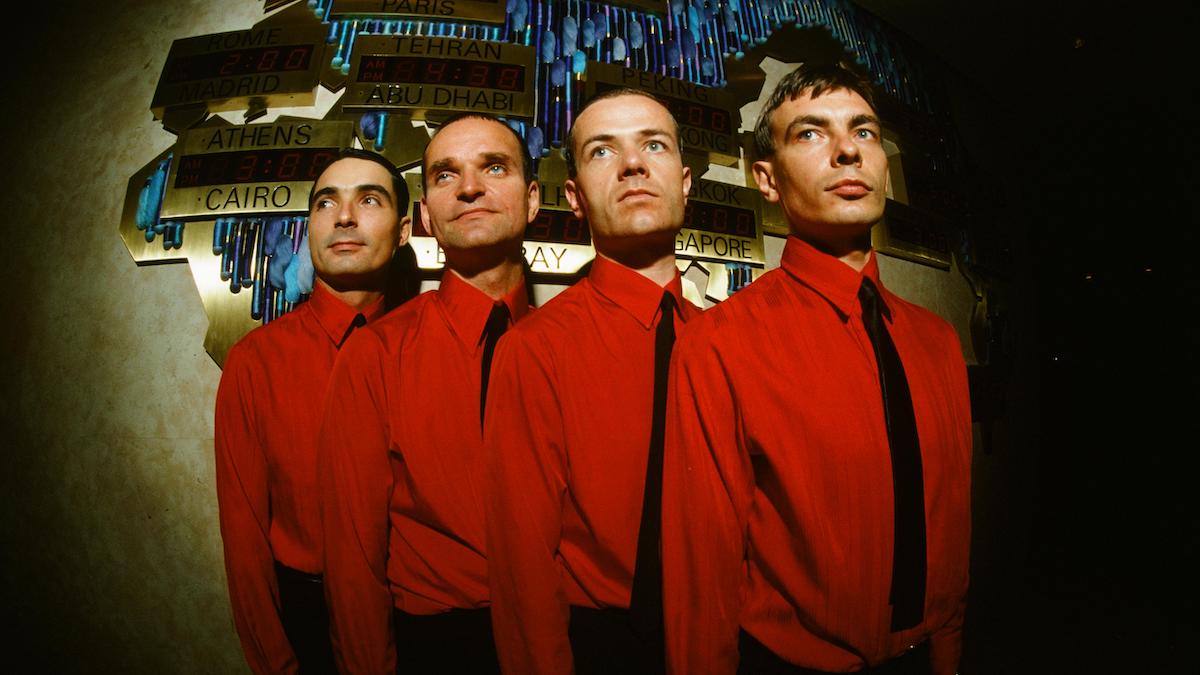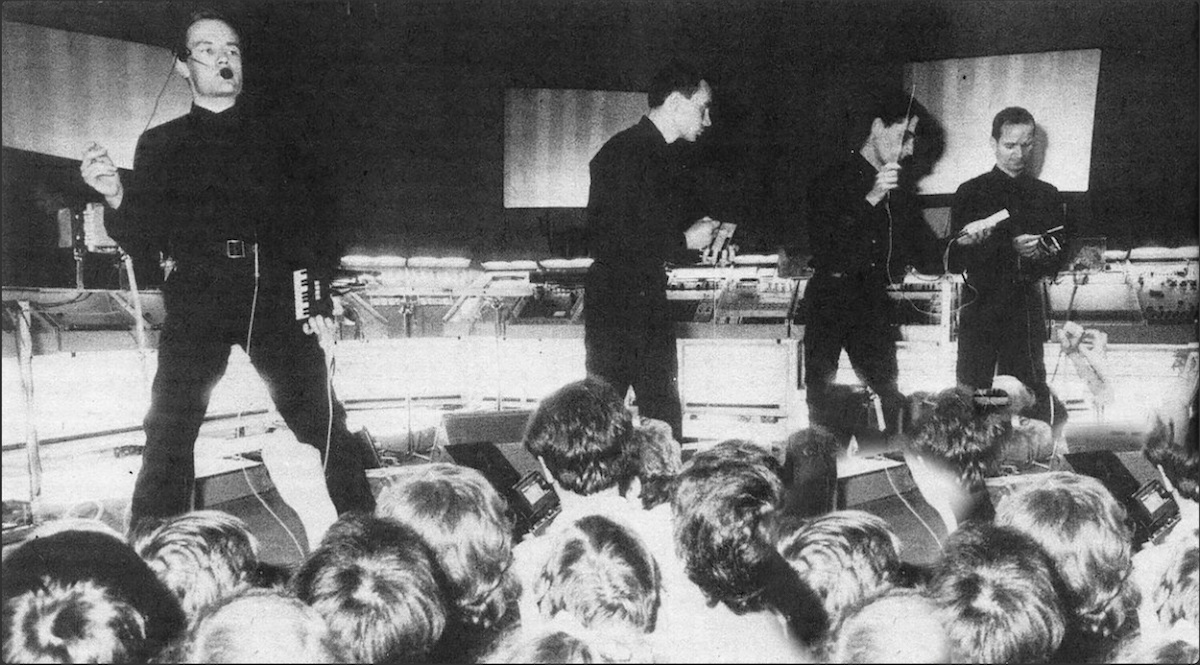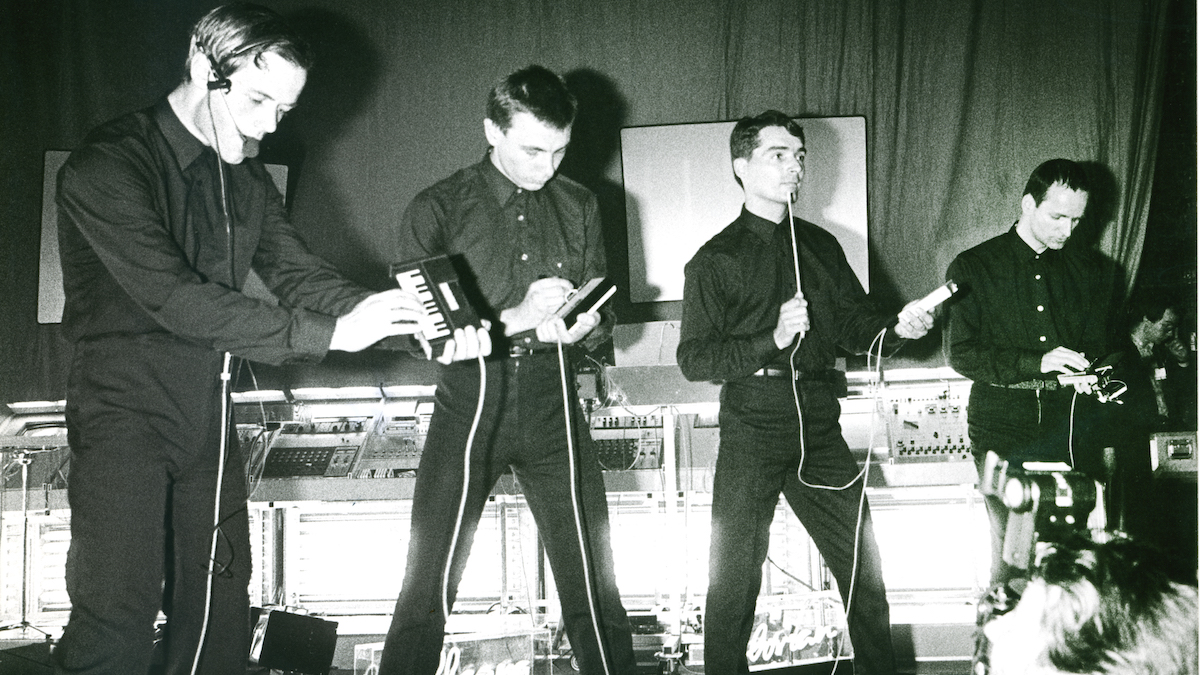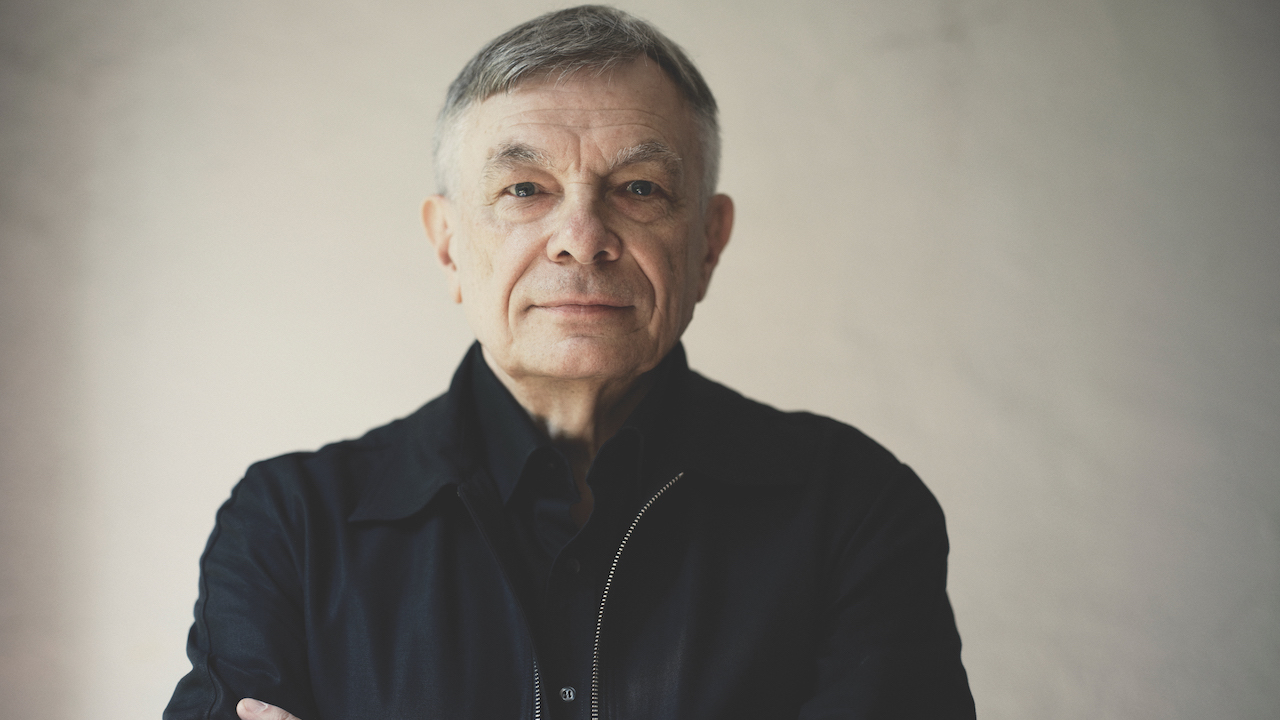
In our Pioneers series, we illuminate the genius of the most influential artists and producers in musical history. This month, we take on Kraftwerk, the extraordinarily influential German four-piece that introduced the world to electronic music.
If you believe the most rabid of Kraftwerk fans, the band are responsible for all of the many genres within electronic music and, while we're at it, quite a lot of those outside of it.
But while many of these claims are stretching the facts just a teensy bit, the Düsseldorf band are responsible for paving the way for the synthesizer, popularising stripped-back electronic sounds and, constantly exploring the relationship between humans and technology, showing us that we can all make tunes with machines, no matter our musical background - or lack of it. Kraftwerk are the ultimate production pioneers, then, whatever style of music you make, whether that is Musique Non-Stop. Or not.
But before the machines, Kraftwerk were (kind of) proper musicians, where their 'volksmusik' pointed more towards traditional German folk than futuristic tunes made by robots. The core duo of Ralf Hütter and Florian Schneider studied and met at the Robert Schumann University of Music in Düsseldorf, and between them they could wrestle tunes from organs, violins, guitars and flutes, and did so on freeform compositions across a couple of albums: 1970's Kraftwerk and Kraftwerk 2 a couple of years later. Ralf und Florian, the duo's third release as Kraftwerk, would see them investigate more electronic tones, but it would be 1974's Autobahn where the legend truly began.
“We started from electroacoustic,” Hütter told Andrew Collins on BBC 6 Music in 2003, “and transformed with our Kling Klang studio into the fully synthesised music of 1973, [and in] '74 with Autobahn, gradually progressing into synthesised music.”
Ah yes, Kling Klang studio, the technology hub of the Kraftwerk story, a mysterious promised land, almost a fantasy location that no-one ever visited outside the members of the band, and whose location was fiercely guarded. “Our studio is in the middle of an oil refinery," Schneider told Rolling Stone in 1975. "There’s smoke and fire around it and when you emerge from the studio you hear this hissing sound all around you.” (It turned out to be an industrial unit off a backstreet in Düsseldorf, but let's not pop the Kraftwerk bubble too early on.)
In the early '70s, Schneider and Hütter filled Kling Klang with gear built by them and a team of engineers. Hütter: “First they built instruments for us and then we built, of course, the electronic drums which were built by my partner and friend Florian Schneider together with our friend Emil Schult, and later we had sequencers built.”
It was gear that no-one else was using, or if they were, it was for creating synth versions of classical works (Wendy Carlos) or 20-minute synth prog solos (Rick Wakeman, Keith Emerson). Certainly no-one was using it to create records like Autobahn, the band's fourth release.
Joined by Wolfgang Flür and (later in 1975) Karl Bartos for the now classic Kraftwerk line-up, a series of TV show appearances, and live dates – where they literally took Kling Klang on the road with Minimoogs, ARP Odysseys and more – propelled Autobahn into both the UK and US charts.
Autobahn (1974) would signal the start of an iconic series of themed LP releases including Radio-Aktivität (1975), Trans Europa Express (1977), Die Mensch-Maschine (1978), and Computerwelt (1981). Whether it was fusing the mundanity of travel with endless cycling sequences – and actual road cycling (they were huge fans) – or examining the relationship between humans and machines, all these themes were set to pristine synthetic backdrops, melodies so simple, yet infectious, and ridiculously highly-polished productions.
The impact wasn't immediate by any means, but by the end of this run of releases in the early '80s, Kraftwerk has done enough to kick-start electronic music, most obviously in the UK with synth pop, and more than you might think with black American music, notably hip-hop and electro with tracks like Planet Rock by Afrika Bambaataa & the Soul Sonic Force blending – sampling even – elements of the band's back catalogue with their own.
The extraordinary level of high-quality Kraftwerk releases slowed from maximum to minimum throughout the '80s, though, and the truth is that nothing – not 1986's Electric Café, 1991's The Mix, nor 2003 Tour de France Soundtracks – was a match for the band's previous work. With little new material, Bartos and Flür would leave the band by 1990, and even founder member Florian Schneider powered down his robot in 2008, sadly passing away in 2020.
While only Hütter remains of the classic lineup – now joined buy Henning Schmitz, Georg Bongartz and Falk Grieffenhagen – the lack of new material has in no way harmed the Kraftwerk legacy; if anything it has helped the legend grow - as has Hütter's lack of interviews and often taciturn responses when he rarely does speak. Many of these are hilarious – perhaps intentionally – and worth repeating, such as this exchange with BBC 6 Music's Andrew Collins:
Do you have Beatles records at home?
“No”.
Because you are not interested in The Beatles?
“I don't listen to records at home at all. I don't listen to music, I compose music."
You must be tempted to send a robot along to do interviews?
“Yes.”
Are you good on the guitar?
“No. I play keyboards.”
But it's not the playing of the keys, it is the sound you get at the end of it?
“Yes.”
And the most famous question of all is about that new music, and the most famous response is always a variation of, “it will come out when it's finished”.
While the new music has not been forthcoming, one aspect that has increased in the Kraftwerk camp is the level of touring. The band have been playing 3D performances everywhere for many years, the concerts made much easier, according to Hütter, because of new technology.
“Yes it has been very helpful for us and now we can travel and be mobile and do concerts all over the globe. Before we took our Kling Klang Studio, tons of equipment and it was very fragile, and sometimes the music machines would be out of tune... We worked so hard setting up the concert so we couldn't do so many but nowadays, we are very mobile.”

The future, then, is bright if you are new to Kraftwerk or an old-hand fan. They have embraced immersive technology like no other band and their latest gigs are something else to behold. They are also one of the bands that could exist well into all of our futures with a complete lineup change – as have electronic music-mates Tangerine Dream. Who would honestly care? Kraftwerk used to close concerts with robots playing final encores, so what differences do a few human changes make?
And maybe in the distant future, when the band have influenced space techno, nouveau classical or whatever genres we're listening to – not to mention, no doubt being credited with world peace – they could even be playing completely as robots. Who needs 'ABBAtars' when you have men and machines – or just the machines – in perfect harmony?
Kraftwerk in four releases
1. Kraftwerk - Numbers (1981)
From the Computer World album, this is one source track that Afrika Bambaataa sampled to launch their own extended mixes. It's also an easily sample-able and copy-able beat that could (and very probably did) back many a breakbeat tune. Yet the vocoded numbering, albeit taken from kid's toys, is also a major influence, and that's the thing with the Kraftwerk – their influence is multi-layered and not always so obvious.
2. Kraftwerk - Radioactivity (1975/1991)
One of the few Kraftwerk songs to be (almost) bettered on The Mix album in 1991, to many because it made the song more of an anti-nuclear statement than the original. This live version covers both bases so you're covered no matter what your views. Even 1975's more mournful original was years ahead of its time, with many tracks from the album of the same name worth a revisit for some of the most human-level listening the machines ever produced.
3. Kraftwerk - Trans-Europe Express (1976)
Another heavily-sampled Kraftwerk track and another lengthy piece about travel. And like Autobahn, it shouldn't work but this mesmerising, cycling, shuffling, electronic journey across the continent is almost trance-like in its simplicity, and whatever you think about it, they use the famous line, 'From station to station, back to Düsseldorf City, Meet Iggy Pop and David Bowie' which actually did happen, thanks to Bowie and Kraftwerk's love for one another.
4. Kraftwerk - Neon Lights (1978)
As good as the simple verses and lyrics are – demonstrating Kraftwerk's ridiculously unmatched knack for effective melody lines and perfect production – it's the way that Neon Lights cycles into its own kind of instrumental crescendo, almost like the robots are booting the singing humans off the record to just carry on playing the synths themselves. Just like AI destroying humanity, really. See, Kraftwerk correctly predicting the future again.









